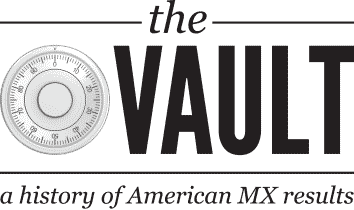The year is 1985, people are into the new real Coke formula (not really), Tina Turner is making a comeback like no other with her ‘Private Dancer” CD, people are trying to figure out this pop singer Madonna (flash in the pan?), the Edmonton Oilers win their second straight Stanley Cup, Showtime takes over as the LA Lakers beat Boston for the NBA title and what exactly is that thing called the ozone layer?
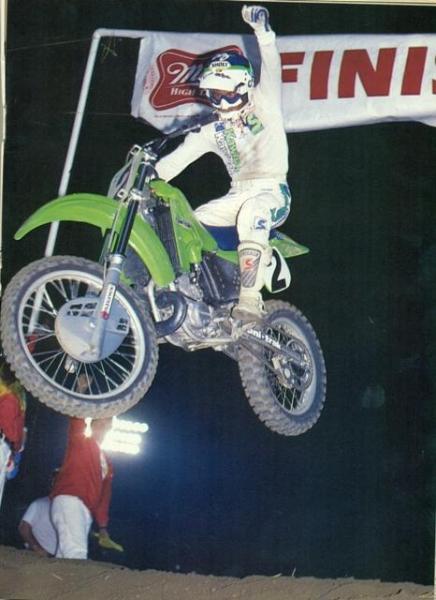
The 1985 season would be the last in America for the works bikes. Sweeping changes announced by the AMA which would ban the exotic machines in favor of a production based bikes for 1986. The idea was to help privateers compete with the factory squads, and perhaps also to stifle Team Honda’s dominance on works bikes. As well, the 500 and 250 class was going to be combined into one series (splitting the season) in an effort to get more depth in each of them. So 1985 was the last year that the Nationals would feature works bikes and three pro classes.
The schedule is getting close to the one we see today. Five of the tracks on the ’85 schedule still reside on the 2011 tour, and Southwick was getting ready to come back on. The series did see a one and done with the Las Vegas national, however.
Long time Suzuki star Mark Barnett had switched over to Kawasaki and went back down to the 125 class in an effort to recapture the magic. The experiment didn’t work as Barney suffered injuries and ineffectiveness and retired at the end of the year. It wasn’t all bad, though, as he did win the Atlanta Supercross in his swan song. 125 national champion Jeff Ward took his ’84 125 number one plate and moved up to the 250 class for the nationals as did his rival, Johnny O’Mara, while last year’s 250 class runner-up, Ron Lechien, moved down to the 125s on the ultra-trick HRC125.
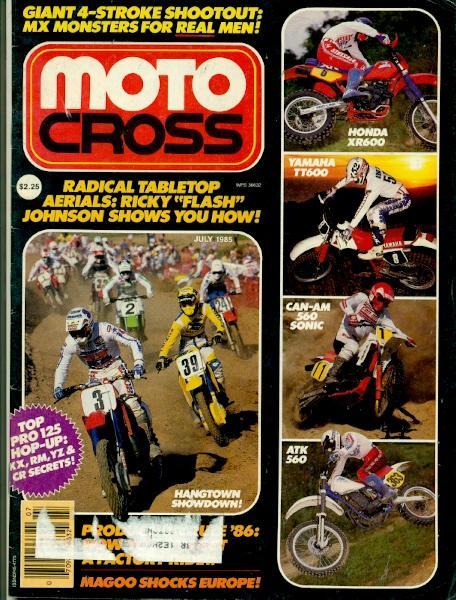
The star power in the class was definitely in the 250s, as combined, there were over ten national championships on the line each and every time out. Jeff Ward, Johnny O’Mara, Rick Johnson and Bob Hannah went at it for the title although Hannah would once again get hurt and miss some races. Ward was fresh off the supercross title and was coming into his own on the Kawasaki KX250. O’Mara had the latest, greatest Honda works bike and Johnson was the defending champion in the class. It wasn’t going to be easy for anyone to win the title.
In the end, it was Ward continuing his roll from the supercross season, as he captured five wins to get the class championship. Johnson and O’Mara would win two each with Hannah showing that he still had it in winning Millville. Just like Bailey and Hansen in years past, Ward’s two titles in one season meant that he was now considered the top rider in the world. The big difference was that Ward did it on a green machine, a brand that had struggled just a few years earlier. Kawasaki never gave up on Wardy, and Wardy stuck with them. These were great times for the Flying Freckle.
Despite being at a massive equipment disadvantage, Yamaha’s Broc Glover reclaimed his 500cc title over David Bailey, who fought with the bike and some small injuries the entire year. Glover poured it on in the second half of the season and took his air-cooled now-long-in-the-tooth YZ490 to what was his sixth (and last) national championship. Although Glover would race for another three years, his injuries would mount and he wouldn’t be a factor in another title chase, although he would win his final race of his career in America, the 1988 LA Coliseum supercross.
Bailey would suffer the indignity of losing the runner-up spot in the points to privateer Eric Eaton from Washington when he moved down to the 250’s to help out teammate O’Mara at the last round. The only way that Bailey would lose second was if Eaton happened to win the overall and that is exactly what the privateer did on his home track.
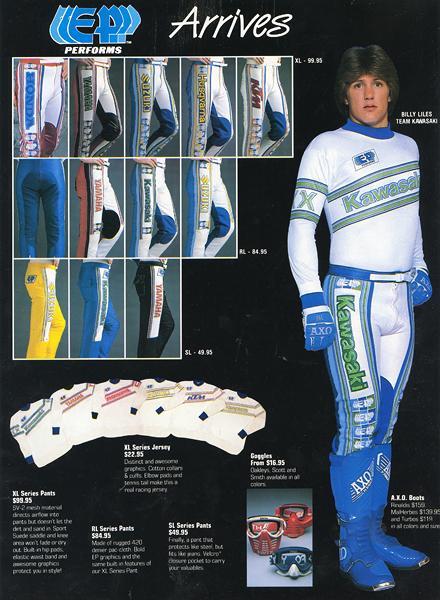
As for O’Mara, he missed the 250 National Title but did win the 250 USGP at Unadilla. Bob Hannah was flying that day and won the first moto, but the Hurricane crashed and suffered bike problems in moto two. Hannah had always been fast and popular at Unadilla, but time was running out on his career, and no matter how hard he tried, luck just never seemed to be on his side at that legendary track. In the 500cc USGP at Carlsbad, Bailey wins via 1-1 scores after Glover crashes while leading the second moto.
In the 125s it was all Lechien all the time, as the gangly six-foot plus kid toyed with the rest of the field to win his first (and only) national championship. A DNF in the opener and a flat tire at Mt Morris were the only reasons “The Machine” lost a race the entire season. Lechien joined Bailey in the 250 class at the final round which produced AJ Whiting’s only career national win in the 125 class at Washougal.
Years later, Lechien smiles when thinking about that year. “I had a good year in 85, just a killer bike and I was at the prime of my career. I had a lot of confidence and pretty much felt indestructible and just worked those guys. I got a flat tire in Mt Morris and at Gainesville, my rear headstay flexed and cracked the cylinder head. I got second or third with the flat and really the only motos I lost were due to mechanicals.”
Coming on strong in the 125 class were Suzuki teammates Erik Kehoe and George Holland, who each took advantage of Lechien’s problems to win a race.
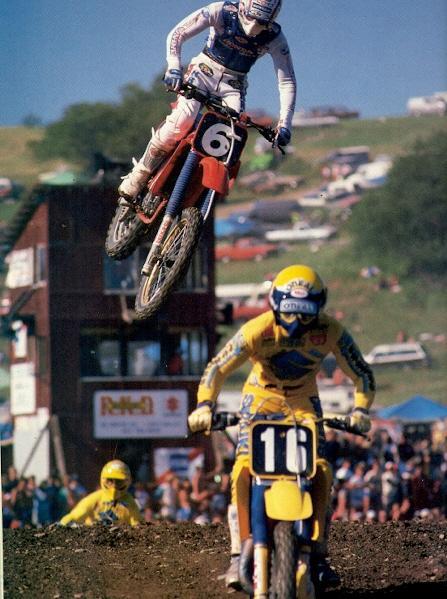
The team of Bailey, Ward and Lechien went to the Motocross des Nations in Germany and with an all-new format that saw every bike out on the track at once. The team won the event for the fifth year in a row.
Unfortunately at the end of the year, Honda’s Lechien would get arrested for possession of drugs in the Tokyo airport when he was going over there for a supercross. Honda immediately fired Ronnie and he was allowed to return to the United States. Lechien would get hired by Kawasaki for the ’86 season.
